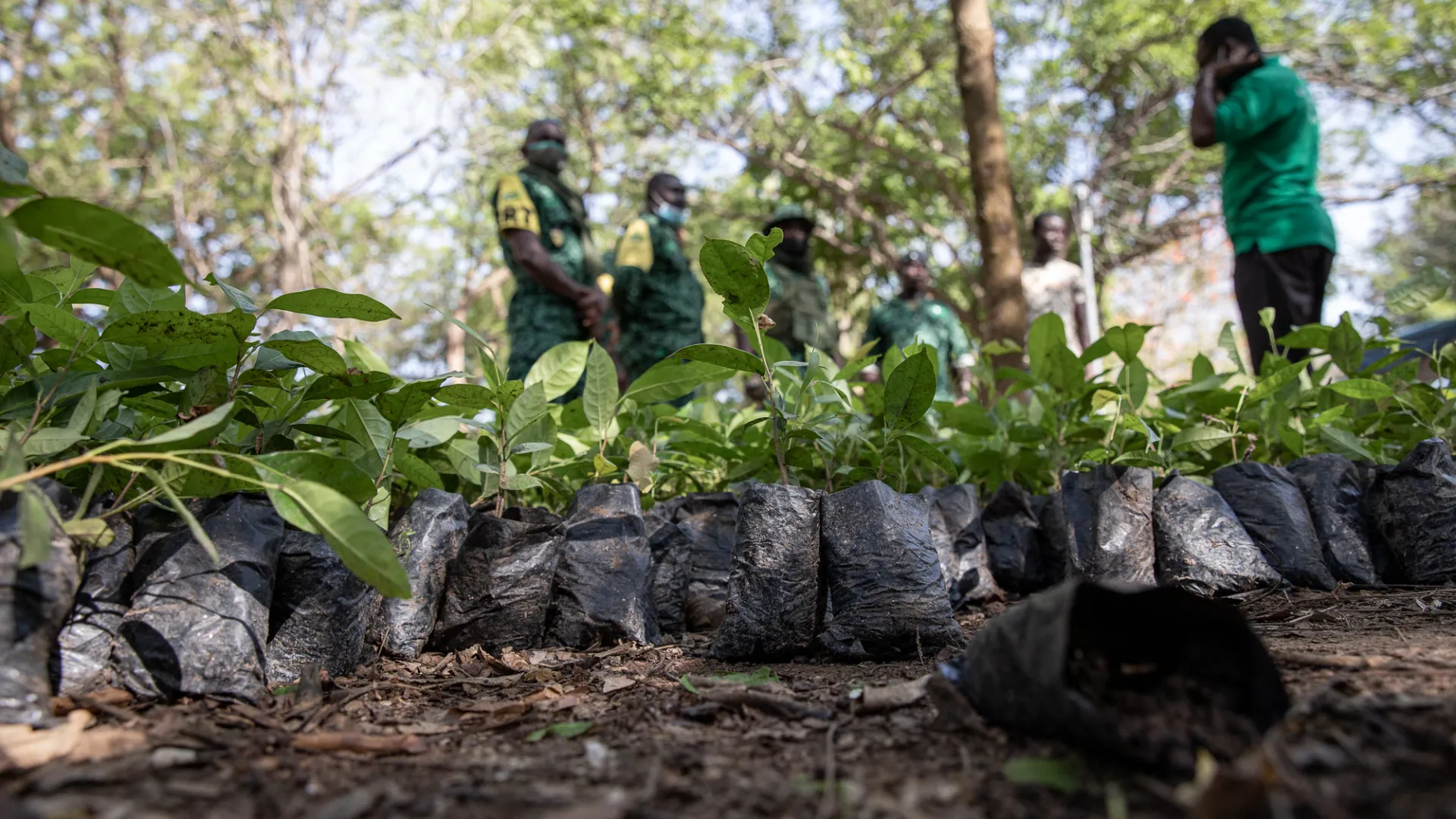The government’s ambitious Green Ghana Project, launched on June 7, 2024, has encountered a setback as some tree seedlings planted in Accra have been destroyed.
The initiative aims to plant 10 million tree seedlings nationwide, bringing the total number of trees planted since 2021 to 54.5 million.
Despite efforts to boost survival rates, stray animals and encroachers have damaged some trees.
In the Okaikoi North Municipality, the Assembly responsible for implementing the project has taken measures like caging and fencing to protect the 10,000 trees planted there.
The Municipal Chief Executive Officer, Boye Laryea, speaking to ChannelOne News, said, “We are targeting 10,000 trees to be planted. Because of the previous experience, we are now caging those that we think will be affected by people who are not interested in this tree-planting initiative. So, areas that we think we can cage, we are caging them.”
When ChannelOne News visited the Apenkwa Roundabout, where tree seedlings had been planted, the area was fenced and locked to prevent encroachers from destroying the newly planted trees.
At the Achimota District Courts, where tree seedlings were also planted, ChannelOne News observed that some plants were caged in wooden structures.
This, however, could not prevent goats and other stray animals from destroying some of the trees planted.
The Ministry of Lands and Natural Resources has promised to release official data and survival rates in the coming days.
The Green Ghana Project, launched in 2021, aims to restore Ghana’s depleted forest cover and combat climate change, with previous editions reportedly achieving a 71% to 85% tree survival rate.

